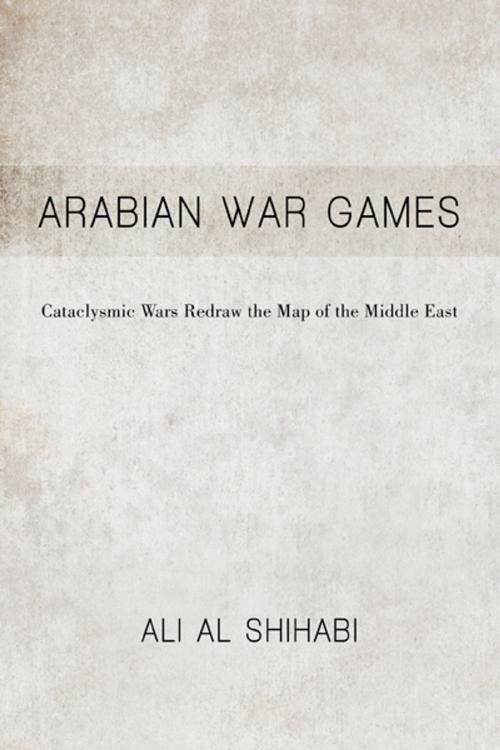Arabian War Games
Cataclysmic Wars Redraw the Map of the Middle East
Nonfiction, Social & Cultural Studies, Political Science, International, Fiction & Literature, Military| Author: | Ali al Shihabi | ISBN: | 9781469784885 |
| Publisher: | iUniverse | Publication: | March 27, 2012 |
| Imprint: | iUniverse | Language: | English |
| Author: | Ali al Shihabi |
| ISBN: | 9781469784885 |
| Publisher: | iUniverse |
| Publication: | March 27, 2012 |
| Imprint: | iUniverse |
| Language: | English |
Ali al Shihabi analyzes the two most dangerous political fault lines running across the Middle East today: the Arab-Israeli conflict and Arabian-Iranian tensions.
In Arabian War Games, the author proposes, through the use of fiction, a scenario where these issues all come to head in an explosive climax.
It is 2016, and the regime in Iran, by then nearly choking to death under sanctions, attempts to cut the noose around its neck by invading Arabia in collusion with its ally Iraq. At the same time, Israeli elites, increasingly obsessed with preserving their Jewish majority and visualizing the Jewish state as slowly drowning in a sea of Arabs, conclude that the time has come to forcibly expel their rapidly growing Israeli-Arab minority into Jordan. The U.S., fatigued by Middle East wars, confused by Iraqs collusion with Iran, overwhelmed by the resultant collapse of global financial markets, and impotent in front of a determined Israel, helplessly watches events play out.
Eschewing the tendency of professional predictors to avoid forecasting the outlandish, Shihabi explores these potential scenarios in a granular fashion, paying particular attention to the mind-set and thinking of the ruling elites who are driving these events.
Far from mere sensationalism, Arabian War Games is a careful analysis of the stress points currently at play in the region. Not only does Shihabi dissect these fault lines and their possible outcomes with incisiveness, he also proposes alternative, creative solutions, in the hopes that such scenarios can be avoided.
Ali al Shihabi analyzes the two most dangerous political fault lines running across the Middle East today: the Arab-Israeli conflict and Arabian-Iranian tensions.
In Arabian War Games, the author proposes, through the use of fiction, a scenario where these issues all come to head in an explosive climax.
It is 2016, and the regime in Iran, by then nearly choking to death under sanctions, attempts to cut the noose around its neck by invading Arabia in collusion with its ally Iraq. At the same time, Israeli elites, increasingly obsessed with preserving their Jewish majority and visualizing the Jewish state as slowly drowning in a sea of Arabs, conclude that the time has come to forcibly expel their rapidly growing Israeli-Arab minority into Jordan. The U.S., fatigued by Middle East wars, confused by Iraqs collusion with Iran, overwhelmed by the resultant collapse of global financial markets, and impotent in front of a determined Israel, helplessly watches events play out.
Eschewing the tendency of professional predictors to avoid forecasting the outlandish, Shihabi explores these potential scenarios in a granular fashion, paying particular attention to the mind-set and thinking of the ruling elites who are driving these events.
Far from mere sensationalism, Arabian War Games is a careful analysis of the stress points currently at play in the region. Not only does Shihabi dissect these fault lines and their possible outcomes with incisiveness, he also proposes alternative, creative solutions, in the hopes that such scenarios can be avoided.















